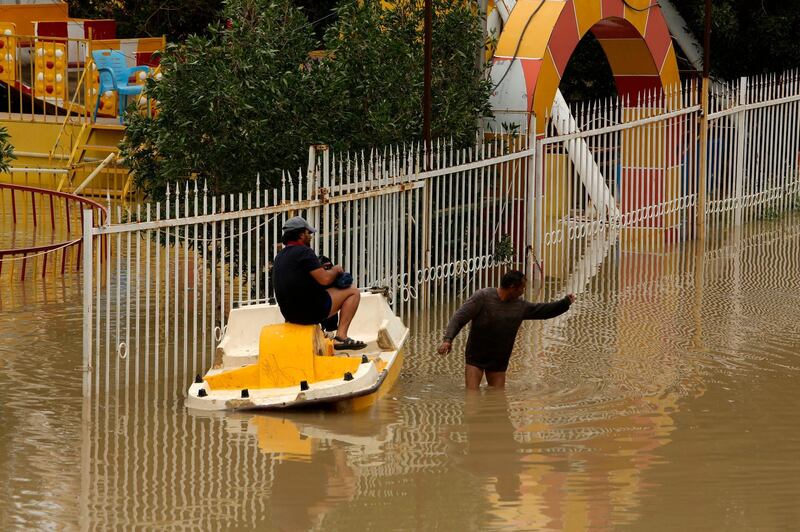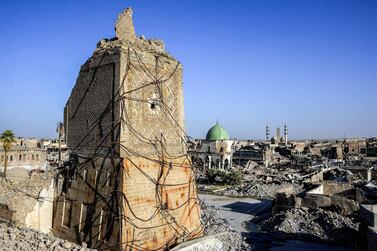Iraqi authorities warned on Thursday of the likelihood of a catastrophic collapse of the country’s largest hydro-electric dam due to torrential rainfall.
The dam, near the northern city of Mosul, was built in the 1980s on a soft gypsum layer on the Tigris river. It is in desperate need of repairs to avoid disasters, experts told The National.
“The dam cannot hold any more water, so an amount must be released leading to an increase in the water levels of the Tigris River, or the dam will collapse,” a statement by the dam’s administration said.
Maintenance work was disrupted in 2014 when the dam was captured by ISIS fighters seeking to establish a caliphate in the across Iraq and Syria.
If the dam failed it would unleash a wave of water almost 90 metres high.
"This will cover the old town of Mosul, which has never been flooded before as it is much higher than the river," Iraqi environmental scientist Azzam Alwash told The National.
The wave would reach Mosul within three hours and Baghdad within 72 hours.
“Every city and village will be flooded,” Mr Alwash said, adding that he has warned that no amount of grout will stop the dam’s water leakage.
The dam’s foundation requires regular cement injections, or grouting, to prevent cracks in the gypsum from expanding.
Although people may survive the flooding the aftermath will be devastating, Mr Alwash said.
“Imagine cities without operating cars nor generators nor clean water, and no access to clinics or hospitals or food stores,” he said.
Heavy rain and snowmelt in neighbouring Turkey and Iran have almost filled Iraq’s four central reservoirs and swelled its two main rivers, the Tigris and Euphrates.
Weeks of bad weather have led to floods in Iraq that have displaced hundreds of families and destroyed crops and farmlands.
High water levels were blamed for last month’s ferry capsizing disaster in Mosul in which more than 100 people drowned.
Earlier this week, Iraq’s water ministry reassured the public that the situation was under control.
“We are in control of the dams and reservoir levels, we are not worried about their safety or stability,” ministry spokesman Aoun Diab said.
But despite the reassurance Mr Alwash says the ministry’s statement is “out of context a bit and sensational”.







